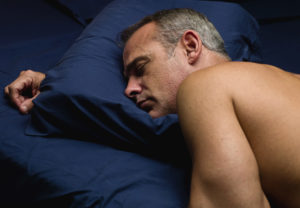
On March 11th, we’ll again ‘Spring Forward.’ Essentially, that takes away the hour we added back in after we ‘Fall Back’ each November.
Losing an hour’s time, on any day, can take its toll, especially when it impacts normal sleep schedules. According to a study published by The New England Journal of Medicine, fatigue associated with the time change is thought to be the main cause for an increase in traffic accidents on the Monday following the switch. (http://www.nejm.org/doi/full/10.1056/NEJM199604043341416)
Studies show there is also an increase in workplace injuries on the Monday following the time change . (http://www.apa.org/pubs/journals/releases/apl9451317.pdf) Too, the severity of the injuries is shown to be greater. Some studies show increases in heart attacks and miscarriages on that Monday as well.
Although losing one hour of sleep each year seems trivial, scientists point out that the biological makeup of humans, for all eternity, has followed nature’s 24-hour cycle of day and night. The rotation of the earth governs the body’s sleep patterns through the circadian process, our internal clocks that alter the periods of wakefulness and sleep (as well as the depth of sleep).
This age old process conforms to the 24-hr rotation cycle of our planet. Trivial thought it may seem, that one hour change has proven to disrupt this. And, as studies have shown, this can alter energy levels, alertness, motivation and even hunger urges.
Daylight savings time actually originated during World War I as an effort to conserve energy. After the war ended, the time returned to normal but was reinstated after World War II began.
The original intent of Daylight Savings Time was to conserve energy by requiring fewer lights, thus saving on energy needs per household. However, lighting in today’s household is but a fraction of energy requirements. With bulb being more energy efficient, a lamp is hardly pulling much energy.
Homes today are constantly abuzz, consuming energy for televisions, computers, microwaves, refrigerators, heating and cooling systems, hair dryers, and security systems. Many appliances use energy even when not in active use. Computers, for instance, use energy even in sleep mode. The sun’s presence, today, has very little to do with average power usage per household.
Many question if DST calculates into enough of a savings to justify the disruption of sleep patterns, which can lead to the the mental and physical toll inflicted on us. As a matter of fact, some studies estimate the actual savings attributed to Daylight Savings Time is a mere 1 or 2 percent, or less.
A growing number of states are addressing this issue, with some having ‘bowed out’ of the switch already. Those not recognizing DST include Arizona, Hawaii, American Samoa, Puerto Rico, Guam, and the U.S. Virgin Islands. Other states are considering it, as is Alaska that is already divided by two time zones. They are seeking a statewide change.
There is no debate, however, that our bodies need adequate sleep. Restful sleep is how our body rejuvenates and the brain resets its efficiency for proper functions. Not getting enough sleep (or getting a poor quality of sleep) can result in daytime fatigue, being less alert and more accident prone, nodding off easily, and feeling hungrier. Studies have also found that sleep deprived drivers are more deadly than drunk drivers.
Daytime fatigue aside, insufficient sleep has also been found to increase your risk for serious health problems. Sleep disorders (including sleep apnea) have been associated with heart disease, stroke, high blood pressure, obesity, depression, migraines and headaches, and impotency.
So, how can a dental office help you improve your quality of sleep?
I’ve completed special, advanced training in the treatment of mild to moderate sleep apnea using a small, FDA-approved oral appliance. These mouth pieces are custom-fitted to conform to your mouth and are small and comfortable. For many who either snore heavily or have sleep apnea, these appliances can restore sleep quality.
Call 586-739-2155 to schedule a free consultation. During this time, I’ll discuss how we can help you overcome sleep problems affordably and effectively.